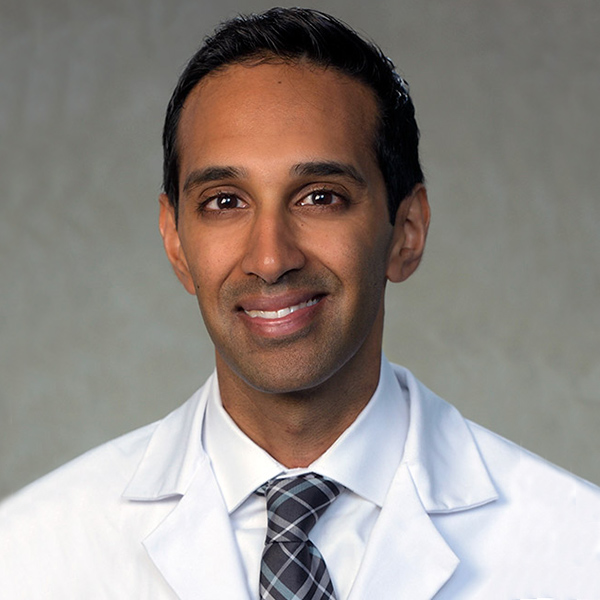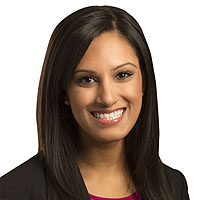Narrowing the Gender Gap Through Mentorship: Interview With Srinath Adusumalli, MD, MSc, FACC

The last two decades have shown considerable progress in reducing gender disparities in medicine. However, the under-representation of women in cardiology continues to persist.
Women now make up half of U.S. medical school student body, yet only 20 percent of cardiology fellows and 12 percent of board-certified cardiologists are women.
The statistics are even more grim in procedural specialties such as interventional cardiology and electrophysiology, which contain 7 percent and 6 percent women, respectively.
In addition, among cardiologists, women are less likely to excel academically and earn less than their male counterparts.
Having mentors and sponsors who support your career can help level the playing field for women. With the emphasis on diversity and inclusion and the #HeForShe movement, many men are becoming informal champions for their female colleagues.
These male champions truly believe in gender equity, fairness and the development of talent within the cardiovascular workforce. So how do their leadership skills help advance female leaders?

A key behavioral theme associated with gender inclusive leadership that supports women's career advancement is providing gender-aware mentoring. Receiving mentorship from males can increase career progress satisfaction for women, particularly in male-dominated industries such as cardiology.
Acknowledging the crucial role that men can play in creating gender equality is necessary in order to engage the entire cardiovascular field in conversations surrounding equality and fairness at work.
This FIT Mentor Spotlight will focus on Srinath Adusumalli, MD, MSc, FACC, an early career cardiologist at the University of Pennsylvania. In addition to his numerous academic accomplishments, Adusumalli is also a champion for all FITs, including women.
As an early career cardiologist starting to establish your career, how do you effectively mentor while maintaining a work-life balance?

Mentoring trainees of all levels is absolutely one my favorite and most rewarding activities, so I prioritize it highly among the activities I am involved with. My mentees, much like my patients, come first as I think about how I schedule my day.
As an academic cardiologist interacting with medical students, residents and fellows throughout the day, I view mentoring as an integral part of my role within and outside of my institution. I try to integrate mentoring into as many aspects of my daily activities as possible, which is helpful for maintaining work-life balance for both myself and my mentees.
For example, I aim to use downtime integrated into our clinical work (i.e. between reading echos or seeing patients in fellows' continuity clinic) for quick check ins with mentees who I am working with. That said, it is still critical to protect time for face-to-face mentoring conversations and in chunks of time ranging from 15 to 30 to 60 minutes, depending on the type of conversation and needs of a particular mentee.
Of course, mentoring conversations also do not always have to occur in person during office hours – they could be via phone call, text, WhatsApp or Skype, all of which contribute to the flexibility needed to maintain a productive relationship and mentee/mentor work-life balance.
It is also important to remember that not all mentoring relationships have to follow the same archetype. Vineet Chopra, MD, MSc, et al., penned a JAMA Internal Medicine viewpoint in 2018 that outlines several types of mentoring relationships, including traditional mentor, coach, sponsor and connector.
Thinking deliberately about the type of relationship one is trying to create early on is helpful in saving mentee/mentor time and contributing to work-life balance.
When did you start mentoring others? What motivates you to serve as a mentor?

I have been fortunate enough to experience first-hand the impact of successful mentorship throughout my career trajectory, from college to my time now as an early career cardiologist. Having a diverse and engaged mentorship team (composed of those senior to me, peers and those junior to me) has been foundational to helping me get to this point in my career, and it has motivated me to make mentorship a pillar of my career.
Like many of us, I started mentoring early on as a college student, advising those in high school on college and guaranteed medical program admissions. Similar to patient/clinician relationships, I realized how rewarding mentee/mentor relationships are to both parties and how much of an impact a mentor can have on the life of a mentee.
These types of human connections are even more important in this technology-driven world.
Personally, it is extremely rewarding to work with mentees to develop individualized mentoring plans that evolve over time. It is also a good opportunity to learn about the perspectives and life experiences of others – I often learn as much, if not more, from my mentees as they do from me.
I have a particular interest in developing systems for ensuring that diverse and inclusive mentoring relationships (in the mold of the four aforementioned archetypes) are available to all interested – we have done some work on that locally.
Stay tuned for part two of this interview in the next ACC On-Call for FITs newsletter!


